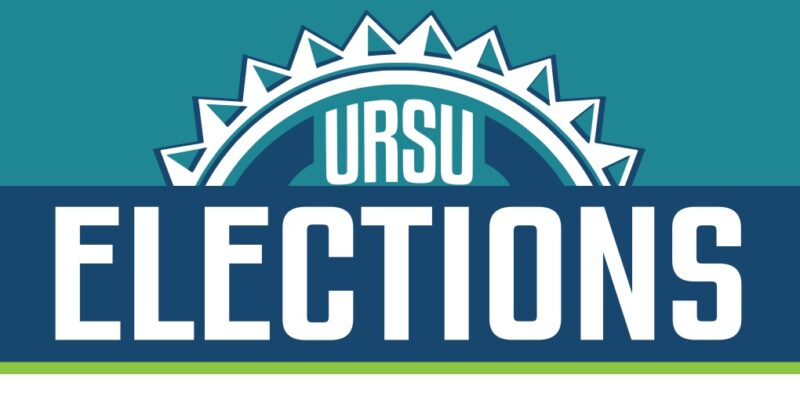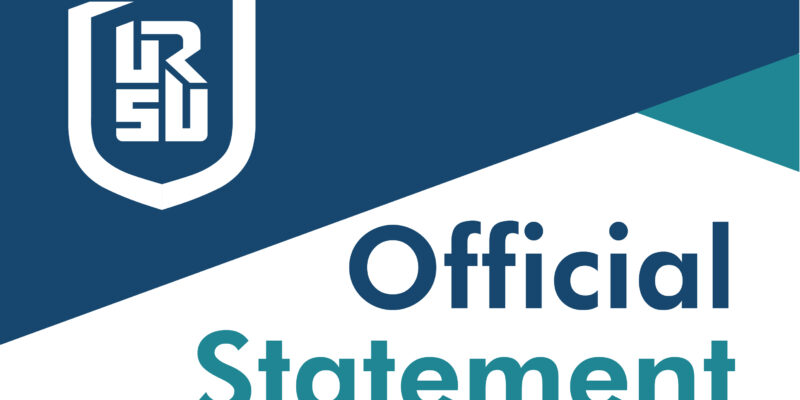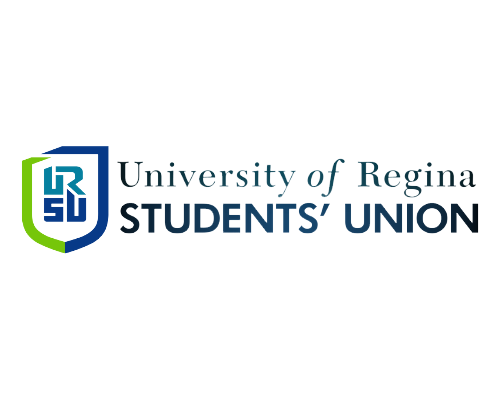[et_pb_section fb_built=”1″ _builder_version=”4.1″ custom_padding=”0px||||false|false”][et_pb_row _builder_version=”4.1″ width=”100%” custom_padding=”0px|||||” locked=”off”][et_pb_column type=”4_4″ _builder_version=”4.1″][et_pb_image src=”http://ursu.ca/wp-content/uploads/2021/10/Blog_Header_WFD2021-scaled.jpg” force_fullwidth=”on” _builder_version=”4.1″][/et_pb_image][/et_pb_column][/et_pb_row][et_pb_row _builder_version=”4.1″ width=”100%” custom_padding=”0px||0px|||” locked=”off”][et_pb_column type=”4_4″ _builder_version=”4.1″][et_pb_text _builder_version=”4.1″ text_font=”Roboto||||||||” text_text_color=”#333132″ text_font_size=”15px” hover_enabled=”0″ custom_margin=”||60px||false|false”]
World Food Day 2021: Better production, better nutrition, a better environment, and a better life
The creation of the United Nations Food and Agriculture Organization, on October 16th, 1945 initiated international attempts to eliminate hunger and food insecurity, improve nutrition, and sustainably manage our global food systems. World Food Day is now annually recognized as a day to come together and raise global awareness about the harsh realities of our current food systems. The food systems we rely heavily on neglect to care for our most at-risk populations, exposing the injustices and inequalities that exist in our global food structures and policies. Global degradation is rampant; the ways we produce, consume and dispose of our food is putting immense stress on our environment.
“A sustainable agri-food system is one in which a variety of sufficient, nutritious and safe foods is available at an affordable price to everyone, and nobody is hungry or suffers from any form of malnutrition. The shelves are stocked at the local market or food store, but less food is wasted and the food supply chain is more resilient to shocks such as extreme weather, price spikes or pandemics, all while limiting, rather than worsening, environmental degradation or climate change.” – Food and Agriculture Organization of the United Nations
As we work towards revamping our food system and successfully achieving the UN’s 17 Sustainable Development Goals we must educate ourselves, advocate and empower those who are contributing to food in a positive way. Whether you produce, consume, harvest, distribute, or cook food, you are an intrinsic part of the food system. This year, the University of Regina Students’ Union has decided to highlight five Food Champions who are initiating food change locally.
[/et_pb_text][et_pb_text _builder_version=”4.1″ text_font=”Roboto||||||||” text_text_color=”#333132″ text_font_size=”15px” hover_enabled=”0″ custom_margin=”||40px||false|false”]
URSU’s 2021 Food Champions
[/et_pb_text][/et_pb_column][/et_pb_row][et_pb_row _builder_version=”4.1″ column_structure=”2_5,3_5″ custom_padding=”0px||0px|||”][et_pb_column _builder_version=”4.1″ type=”2_5″][et_pb_image src=”http://ursu.ca/wp-content/uploads/2021/11/image3.jpg” _builder_version=”4.1″ hover_enabled=”0″][/et_pb_image][/et_pb_column][et_pb_column _builder_version=”4.1″ type=”3_5″][et_pb_text _builder_version=”4.1″ text_font=”Roboto||||||||” text_text_color=”#333132″ text_font_size=”15px” hover_enabled=”0″]
Boreal Heartland
“We are Indigenous owned and operated, and our products are guaranteed to be made only from plants ethically and sustainably harvested from the pristine boreal forest of Northern Saskatchewan. At Boreal Heartland our goal is to provide you with ethical premium wild products and unique flavours, while creating sustainable, environmentally sound and culturally appropriate economic opportunities for the people of Northern Saskatchewan (where there’s only 38% employment). The majority of our harvesters are Indigenous (~90%) and many harvest on their traditional territories or traplines.”
How does your organization contribute to strengthening our local food system?
The boreal forest has just as many amazing things in it as tropical forests, yet it is largely ignored. People have lived abundant and healthy lives here for 1000s of years yet modern culture has forgotten about all the amazing flavours we have right here in Saskatchewan. Why import when we can use what’s here? It helps us feel connected to this place and look at the forest for more than just the trees. The plants also have loads of beneficial health properties and are being explored in many new scientific studies. Personally, it’s also just really nice to go for a walk and look at a plant, say Labrador Tea, and know that it’s edible as a tea or spice. It makes the woods a very friendly place haha.
[/et_pb_text][/et_pb_column][/et_pb_row][et_pb_row _builder_version=”4.1″][et_pb_column _builder_version=”4.1″ type=”4_4″][et_pb_divider _builder_version=”4.1″ divider_position=”center” color=”#000000″ hover_enabled=”0″][/et_pb_divider][/et_pb_column][/et_pb_row][et_pb_row _builder_version=”4.1″ column_structure=”2_5,3_5″ custom_padding=”0px||0px|||”][et_pb_column _builder_version=”4.1″ type=”2_5″][et_pb_image src=”http://ursu.ca/wp-content/uploads/2021/11/image4.jpg” _builder_version=”4.1″ hover_enabled=”0″][/et_pb_image][/et_pb_column][et_pb_column _builder_version=”4.1″ type=”3_5″][et_pb_text _builder_version=”4.1″ text_font=”Roboto||||||||” text_text_color=”#333132″ text_font_size=”15px” hover_enabled=”0″]
Bree
“I volunteer with local Community Fridges and other Mutual Aid/Direct Action Orgs. in Saskatchewan/Alberta and other areas of Canada that work with addressing food insecurity. I am a Red Seal Chef by trade, so this has allowed me to be more involved in the hands-on aspect of actual food production and distribution. I also teach food safety/basic food production to those using these resources, as the current state of the economy does not allow for adequate cooking tools/ingredients. I help to bring awareness regarding WHY food insecurity is an issue, and how we the people can help us… the people!”
Do you provide any services, in relation to food security, that are open to students and the public?
YES! Each and every aspect of working within Food Insecurity keeps in mind the skills, passions, and needs of all types of individuals in society! It’s no secret that those looking to attain an education are struggling to make ends meet in order to later make ends meet. The school system, Gov’t loan system and other financial “Assistance” often set students back so far that they sometimes end up without a roof over their head, let alone food in the fridge. It’s very important that people of all walks of life with all levels of life experience get involved in addressing inadequacies of the system. Mutual Aid and Direct Action form organically and when there is a need for them. This means that all walks of life add skills and passion to drive these movements forward, as we collectively run these support systems. It’s very important to remember that Mutual Aid organizing is not restricted to those “In Need” – We’re all in need of food, shelter, respect, love, and agency. Mutual Aid creates the foundation for these to be FREE and accessible by all regardless of your class in society.
[/et_pb_text][/et_pb_column][/et_pb_row][et_pb_row _builder_version=”4.1″][et_pb_column _builder_version=”4.1″ type=”4_4″][et_pb_divider _builder_version=”4.1″ divider_position=”center” color=”#000000″ hover_enabled=”0″][/et_pb_divider][/et_pb_column][/et_pb_row][et_pb_row _builder_version=”4.1″ column_structure=”2_5,3_5″ custom_padding=”0px||0px|||”][et_pb_column _builder_version=”4.1″ type=”2_5″][et_pb_image src=”http://ursu.ca/wp-content/uploads/2021/11/image6.png” _builder_version=”4.1″ hover_enabled=”0″ align=”center”][/et_pb_image][/et_pb_column][et_pb_column _builder_version=”4.1″ type=”3_5″][et_pb_text _builder_version=”4.1″ text_font=”Roboto||||||||” text_text_color=”#333132″ text_font_size=”15px” hover_enabled=”0″]
Chad Forrest
“I work at the Regina & District food bank as Manager of Healthy Food and Nutrition. I run the Conexus Commercial Kitchen where we use the food that comes into the Food Bank in several ways. First, we take the bulk sized products and break them down into useable sizes for the client hampers. We also make healthy meals for the community organizations we serve.”
What is something that most people, especially students, may not realize about food insecurity?
The thing I’ve learned in the last year as a Food Bank employee is that food insecurity affects all walks of life, all neighbourhoods in the city, and all of the traditional economic models. Some people use our services one time due to a temporary job loss or unforeseen situation where food becomes difficult to afford. Some people access the Food Bank regularly to supplement their family’s need, and some are regular clients that have persistent food insecurity and can’t get the nutrition needed without some help. Students, away from their families, and facing increasing tuition, rent, and other costs associated with university, are not immune from food insecurity, and should not feel that they cannot ask for help. It is impossible to learn without having fuel for your brain!
[/et_pb_text][/et_pb_column][/et_pb_row][et_pb_row _builder_version=”4.1″][et_pb_column _builder_version=”4.1″ type=”4_4″][et_pb_divider _builder_version=”4.1″ divider_position=”center” color=”#000000″ hover_enabled=”0″][/et_pb_divider][/et_pb_column][/et_pb_row][et_pb_row _builder_version=”4.1″ column_structure=”2_5,3_5″ custom_padding=”0px||0px|||”][et_pb_column _builder_version=”4.1″ type=”2_5″][et_pb_image src=”http://ursu.ca/wp-content/uploads/2021/11/image1.jpg” _builder_version=”4.1″ hover_enabled=”0″ align=”center”][/et_pb_image][/et_pb_column][et_pb_column _builder_version=”4.1″ type=”3_5″][et_pb_text _builder_version=”4.1″ text_font=”Roboto||||||||” text_text_color=”#333132″ text_font_size=”15px” hover_enabled=”0″]
City Street Farms
“City Street Farms is an urban farm in Regina, SK. We partner with homeowners in various neighbourhoods to transform their front or back yards into productive garden space. The homeowner provides access to their yard and pays the water bill and we do all of the gardening. When it comes to harvesting the vegetables and flowers from each yard, we provide the homeowner with a produce box and sell the majority at the Regina Farmers’ Market.”
Why do you think local food production is important?
As our world becomes more and more globally-oriented, shifting our focus to local food production is important for a few reasons:
– The food and agriculture sectors are responsible for a substantial portion of greenhouse gas emissions, a lot of which are related to transport. By limiting how far our food has to travel to get from farm (or factory) to table, we can limit the emissions related to that food.
– Our individual connection to how real food is produced has grown more distant with each generation. When we buy local vegetables, for example, it makes us think about where the food in the grocery store is coming from. If this tomato was grown here, by this individual using these methods, then who grew the tomato at Superstore, and why do they look and taste so different?
– As local food becomes more of the exception than the rule, it has also become too expensive for a majority of the population. As we bring more attention to the benefits of local food, the folks who are able to spend a larger portion of their budget on locally-produced goods may begin to do so. Greater demand will increase the supply and prices may begin to drop, making the food more accessible to lower-income households.
[/et_pb_text][/et_pb_column][/et_pb_row][et_pb_row _builder_version=”4.1″][et_pb_column _builder_version=”4.1″ type=”4_4″][et_pb_divider _builder_version=”4.1″ divider_position=”center” color=”#000000″ hover_enabled=”0″][/et_pb_divider][/et_pb_column][/et_pb_row][et_pb_row _builder_version=”4.1″ column_structure=”2_5,3_5″ custom_padding=”0px||0px|||”][et_pb_column _builder_version=”4.1″ type=”2_5″][et_pb_image src=”http://ursu.ca/wp-content/uploads/2021/11/image5.png” _builder_version=”4.1″ hover_enabled=”0″ align=”center”][/et_pb_image][/et_pb_column][et_pb_column _builder_version=”4.1″ type=”3_5″][et_pb_text _builder_version=”4.1″ text_font=”Roboto||||||||” text_text_color=”#333132″ text_font_size=”15px” hover_enabled=”0″]
REACH Regina
“REACH is a charitable organization that focuses on Food Security through various initiatives including Good Food Box, Family Basket, Education programs and others.”
What obstacles does your organization face while producing and/or distributing food?
At times the demands for our programs exceed our ability to provide.
[/et_pb_text][/et_pb_column][/et_pb_row][et_pb_row _builder_version=”4.1″][et_pb_column _builder_version=”4.1″ type=”4_4″][et_pb_divider _builder_version=”4.1″ divider_position=”center” color=”#000000″ hover_enabled=”0″][/et_pb_divider][/et_pb_column][/et_pb_row][et_pb_row _builder_version=”4.1″][et_pb_column _builder_version=”4.1″ type=”4_4″][et_pb_text _builder_version=”4.1″ text_font=”Roboto||||||||” text_text_color=”#333132″ text_font_size=”15px” hover_enabled=”0″]
Additional Resources and Other Information
Boreal Heartland: https://borealheartland.ca/
City Street Farms: http://citystreetfarms.ca/
Regina Foodbank: https://reginafoodbank.ca/
REACH Regina: https://www.reachinregina.ca/
Create change on campus: https://www.mealexchange.com/about-us
Student food insecurity myths: https://drive.google.com/file/d/1XUQ0dakRww80A7_yGkNRZD-Erdg-EZi7/view
TED talk on food insecurity: https://www.youtube.com/watch?v=pLJ3XnTMlRM
https://www.fao.org/world-food-day/about/en/
[/et_pb_text][/et_pb_column][/et_pb_row][/et_pb_section]


